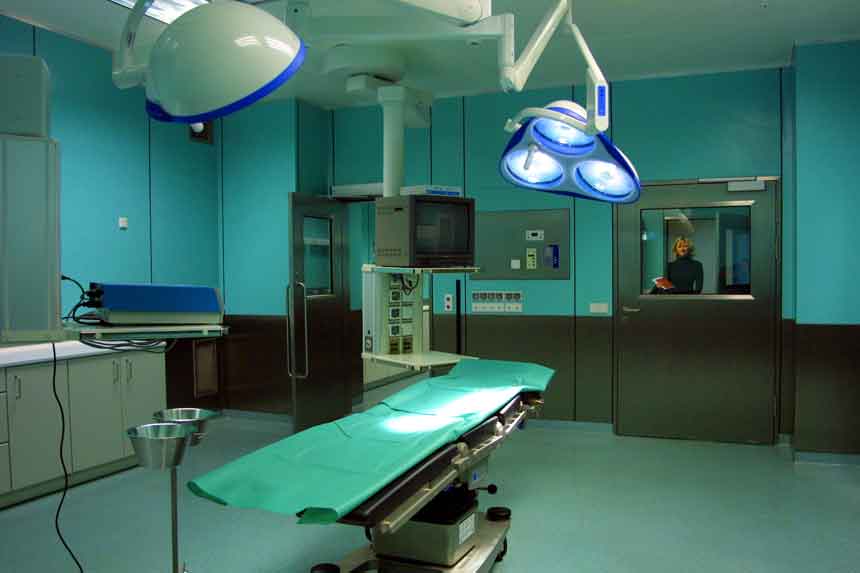Breast conserving therapy may have better outcomes than mastectomy
Breast-conserving therapy may have better outcomes than mastectomy
5 Sep 2014
Patients with early-stage, hormone receptor-positive (HR+) breast cancer may benefit more from breast-conserving therapy compared to mastectomy, according to an analysis of more than 16,600 cases. The retrospective analysis that considered tumor biology and heterogeneity.

Lumpectomy + radiation therapy vs mastectomy
Patients treated with BCT (lumpectomy plus radiation therapy) had an unadjusted 5-year overall survival of 96%, compared with 90% with mastectomy, and 87% among women who had breast-conserving surgery (BCS) only. Survival remained significantly better for patients treated with BCT in matched-cohort analyses but the rates were slightly reduced.
The 5-year survival did not differ significantly between patients who had mastectomy or lumpectomy alone, irrespective of hormone receptor status, Catherine Parker, MD, of the University of Alabama at Birmingham, reported at the Breast Cancer Symposium.
"Breast-conserving therapy is associated with improved overall survival compared to other local treatments in stage I breast cancer patients," said Parker, who was at MD Anderson Cancer Center in Houston when the study was performed. "The benefit associated with breast-conserving therapy appears to be limited to women with hormone receptor-positive disease."
"When tumor biology is considered, the type of local therapy appears to impact the survival of women with stage I breast cancer," she added. "Differences in survival across hormone receptor subtypes may reflect differences in radiation sensitivity."
Multiple clinical trials with long-term follow-up have demonstrated equivalent survival with mastectomy and BCT among patients with early-stage breast cancer. The trials and subsequent analyses occurred before widespread recognition of the effects of breast cancer subtypes on factors such as distant metastasis, locoregional recurrence, and radiobiology, said Parker.
As an example, a Danish study of post-mastectomy radiation therapy showed improved survival only among patients with favorable prognostic characteristics (HR+, HER2-negative).
Research details
Parker and colleagues performed an analysis to determine whether the choice of local treatment affects survival within the context of differing tumor biology. They queried the National Cancer Data Base to identify women with newly diagnosed stage 1 breast cancer treated during 2004 and 2005.
The analysis included three categories of local treatment:
- mastectomy without radiation therapy
- lumpectomy plus radiation therapy (BCT) and
- breast-conserving surgery (BCS).
Tumor subtype was limited to HR status. HR+ was defined as positive for receptors for estrogen, progesterone, or both, and HR- as negative for both types of hormone receptors. The primary outcome was overall survival.
The analysis included 16,646 patients: 11,214 treated by BCT, 3,587 by mastectomy, and 1,845 by BCS. The mean age was 59 in the BCT subgroup, 62 in the mastectomy group, and 66 in the BCS group. The cohort had a median follow-up of 83.5 months.
Parker reported that 72% of the patients were HR+, 72% did not receive chemotherapy, and 63% received endocrine therapy.
Research outcomes
Investigators performed matched-cohort analyses involving 1,706 patients from each of the treatment groups. The results showed a 5-year overall survival of 93% with BCT, 88% with mastectomy, and 86% with BCS.
Analysis of survival by HR status yielded different results. In the HR- subgroup, BCT was associated with a 5-year overall survival of 90% compared with 87% in the mastectomy group and 81% in the BCS group. BCT resulted in a larger survival advantage for patients with HR+ tumors.
A multivariate analysis of the matched cohorts showed that BCT maintained a significant survival advantage over mastectomy for HR+ tumors but not HR- tumors. BCT led to significantly better survival versus BCS for patients with HR+ tumors and HR- tumors.
Survival after mastectomy did not differ significantly from survival after BCS for patients with HR+ or HR- tumors.
Main conclusions
The study provided two key take-away messages for breast oncologists and their patients, said Harold Burstein, MD, PhD, of Dana-Farber Cancer Institute in Boston. The first is the confirmation of many prior studies showing that BCS is "at least as good" as mastectomy.
"The other interesting point is that radiation on top of lumpectomy is very important for overall survival," Burstein, who also is a spokesperson for the American Society of Clinical Oncology, told MedPage Today. "This has been a controversial point. The benefits in some of the studies have been rather small.
"What's clear in this population-based study of thousands of women is that adding radiation therapy -- even for the favorable-prognosis stage 1 breast cancers -- helps women do better in terms of survival down the road."
Source: MedPage Today